TU Delft is doing exceptionally well in the QS World University Rankings that appeared last week. Within two fields it is ranked in the top five: ‘Architecture’ (3) and ‘Civil Engineering’ (4). And ten subjects at TU Delft are in the world top fifty.
The general QS ranking was published in June last year. TU Delft rose from place sixty-two to fifty-four in this overall classification. The list that appeared last week is the so-called World University Rankings by Subjects which classifies 1,130 universities in forty-eight fields. TU Delft received a notation in fourteen fields. The British education-based company, Quacquarelli Symonds (QS), compiles the rankings according to scientific reputation, alumni reputation among employers, citations per scientific article and the H-index (which is another measure of academic output).
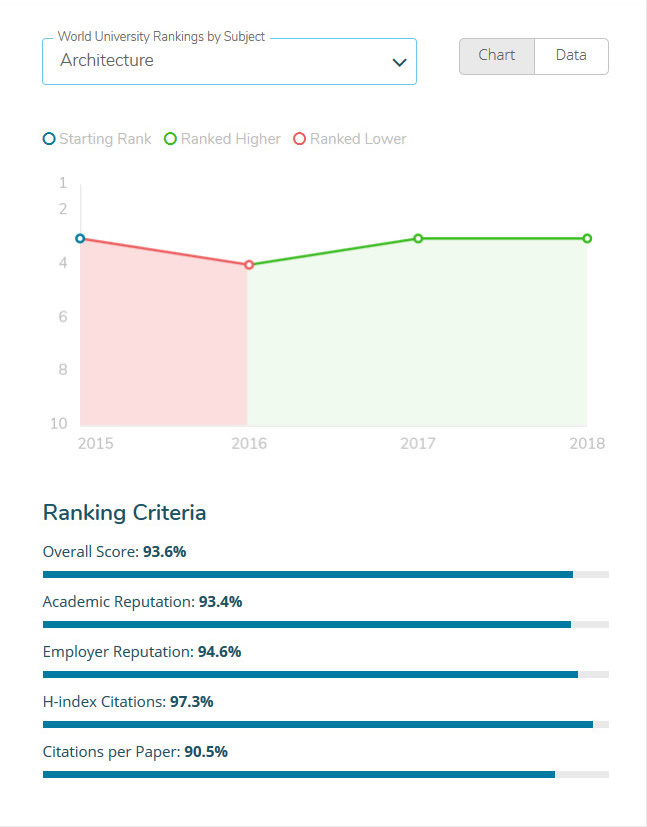

The top three in the Architecture category is the same this year as in 2017, with the Massachusetts Institute of Technology at the top, followed by University College London, and, at three, TU Delft. The good performance of TU Delft in this field can mainly be attributed to its high H-index of 97 percent.
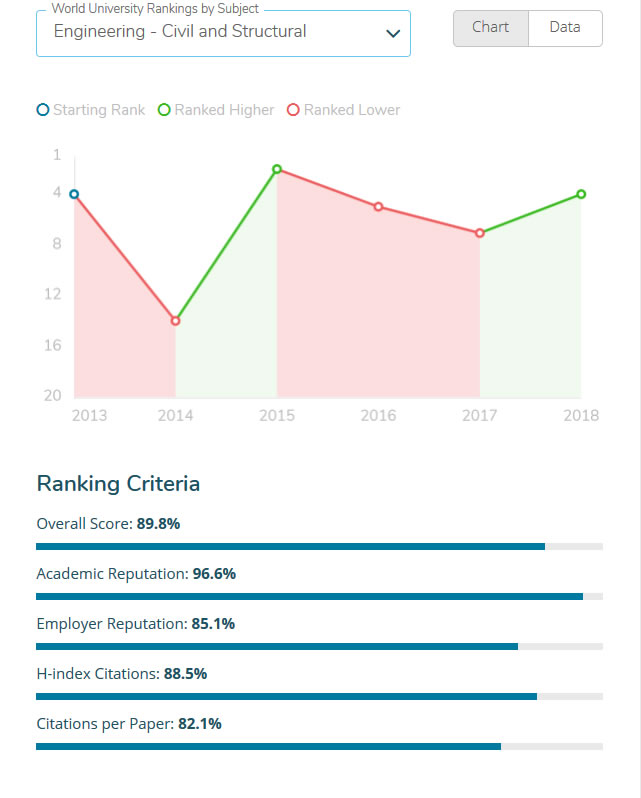

Civil Engineering mainly thrives thanks to its academic reputation, for which it received a score of 96.6 percent. In 2017, Civil Engineering held the seventh position in the ranking. It rose to fourth position this year.
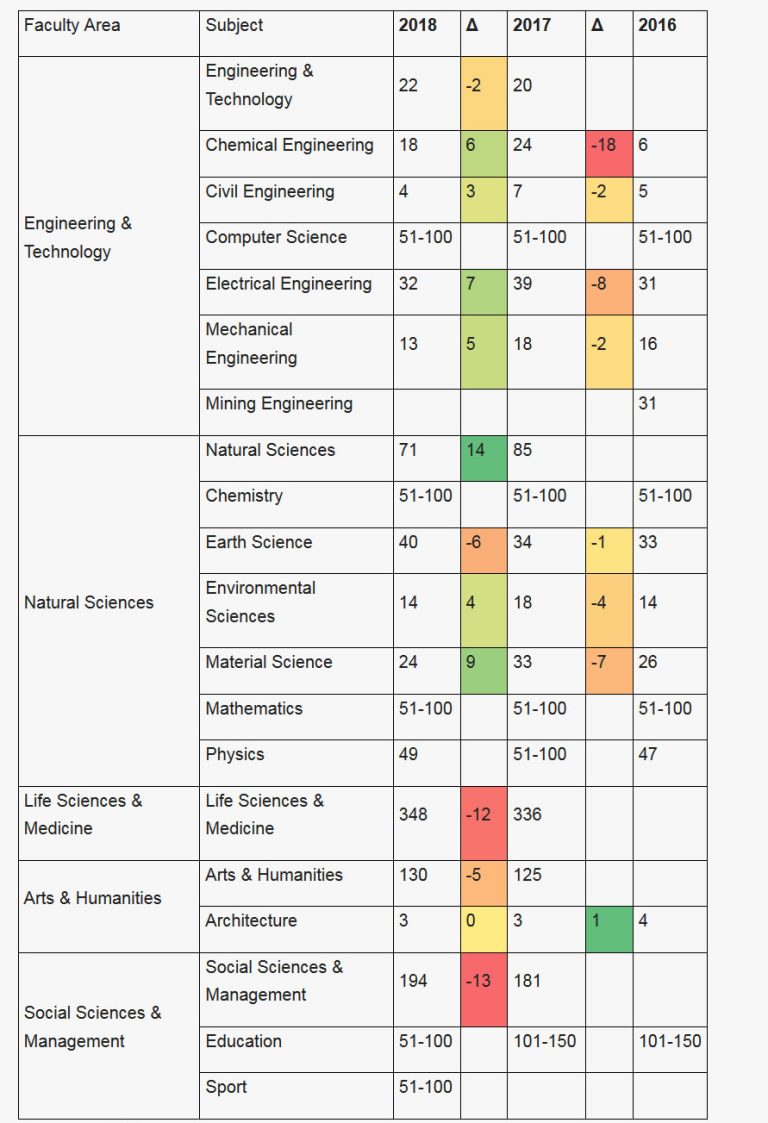

Other areas where the TU Delft has shown a remarkable rise this year include Chemical Engineering, Electrical Engineering, Mechanical Engineering and Material Science. A noticeable decline can be seen in Earth Science.
- Electrical Engineering has remained fairly stable when taken over a longer period. It went from thirty-first place in 2016 to thirty-ninth place the following year, and now stands at thirty-two. Electrical Engineering owes its relatively high score to the many researchers working in that field who have a high H-index (it gets a 91% score for this criterion). These researchers publish a lot and are quoted often.
- Chemical Engineering continues to fluctuate. It held the sixth position in 2016. Last year it dropped to twenty-four and is now at eighteen. In this department, academic reputation (90.4%) largely counts for the relatively high score.
- In Mechanical Engineering and Material Science too, much of their success can be attributed to scientific reputation. Their scores are 92.4% and 89.7% respectively. Last year, Mechanical Engineering was in eighteenth place and is now in thirteenth place. Material Science rose from thirty-three to twenty-four.
- Earth Science dropped from the thirty-fourth spot last year to fortieth this year. The lowest score TU Delft attained in this field is for the reputation of alumni at employers (79%). Although it must be said that taking the 40th place amongst 1,130 universities is not that bad a score.
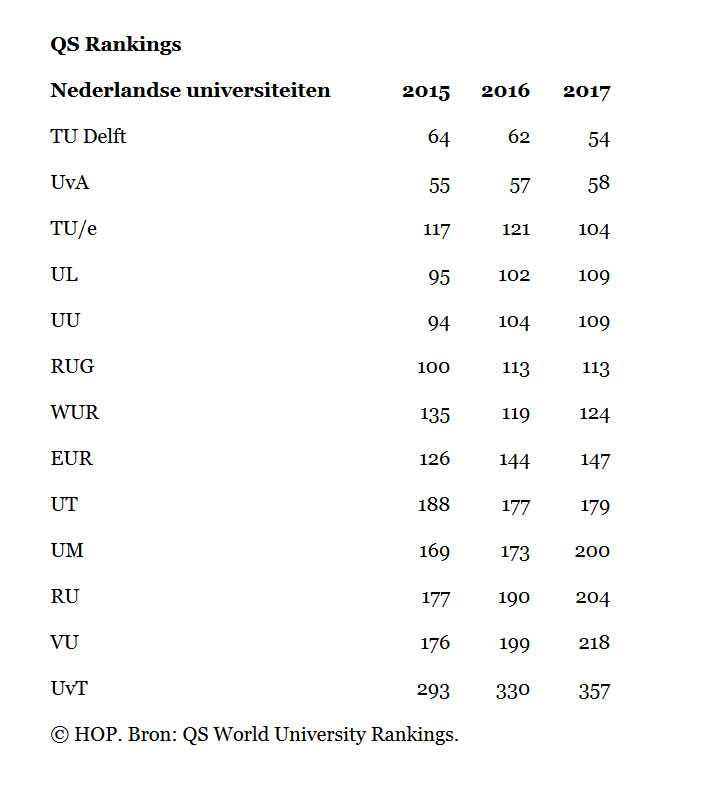

Most Dutch universities are descending in the global QS Rankings, fifty percent of whose criteria is based on the reputation of universities. TU Delft has climbed to fifty-fourth place, overtaking the University of Amsterdam.
At the very top of the QS Rankings, with ‘light years’ lead on the competition, is the American MIT (Massachusetts Institute of Technology). Stanford, Harvard, and Caltech are at two, three and four. Then come four British universities, including Cambridge and Oxford.
This year, TU Delft and TU Eindhoven, are the only Dutch universities that have risen in the ranking. Groningen has remained at place 113 and all the others have fallen slightly.
For its annual ranking, QS draws on the opinions of 70,000 individuals from higher education worldwide. These include scientists and teachers, but also managers and others involved in education. In addition, some 30,000 employers inform QS on the universities from which they recruit the most “competent, innovative and effective graduates”.
Altogether, these surveys account for half of the score in the rankings. Other criteria are the ratio of students per staff member, the impact of scientific articles and the internationalisation of higher education (both among students and staff).
All rankings are subject to critique since they try to simplify something as complex as education using only a few criteria. QS rankings, in particular, came under attack a few years ago. The main point of the critique was that QS did not sufficiently clarify how it recruited its respondents. And QS admitting to paying some of the respondents to fill in surveys also put people off.
The emphasis on reputation may be to the detriment of Dutch universities, especially now that the opinions of international employers weigh just as heavily as those of employers in their own country: previously the latter were given a bit more weight.
For comparison, in the Times Higher Education’s rankings (with eight Dutch universities in the top hundred), the reputation of universities counts for one third of the ranking. In the Shanghai Ranking (with three Dutch universities in the top hundred), the number of Nobel Prizes awarded to employees and graduates counts, but not the reputation.
Tomas van Dijk / HOP, Bas Belleman
Do you have a question or comment about this article?
tomas.vandijk@tudelft.nl

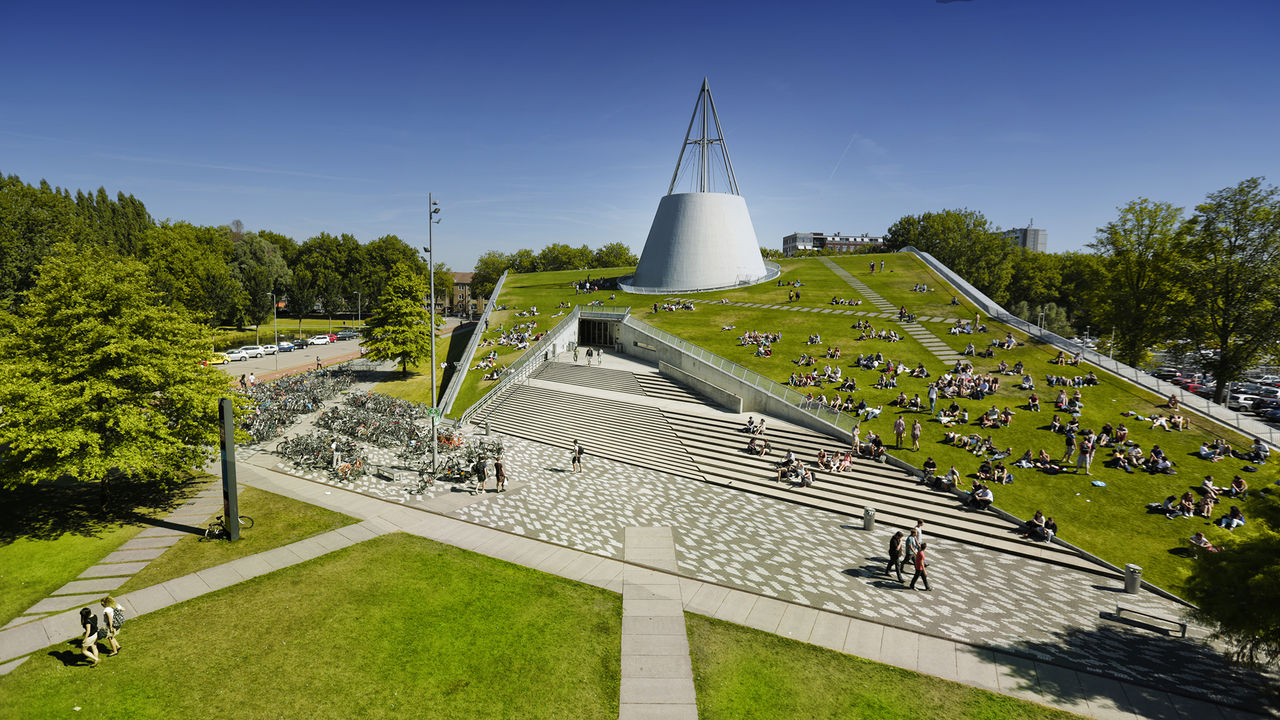
Comments are closed.